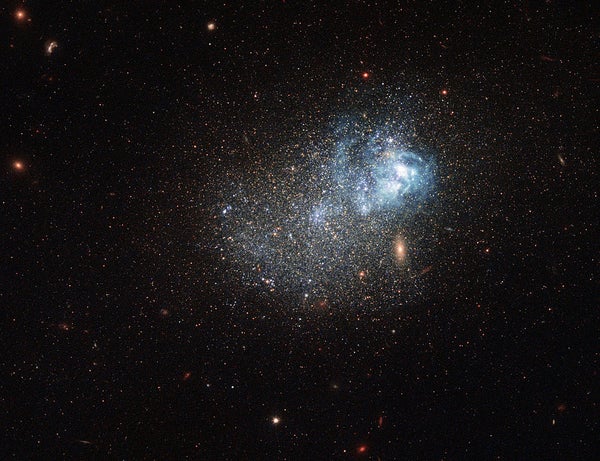
Hi! I’m Everyday Einstein, Sabrina Stierwalt, bringing you Quick and Dirty Tips to help you make sense of science.
Our universe is 13.8 billion years old, a timescale much longer than the more relatable spans of hundreds or thousands of years that impact our lived experiences. So how do astronomers arrive at such an enormous number?
On supporting science journalism
If you're enjoying this article, consider supporting our award-winning journalism by subscribing. By purchasing a subscription you are helping to ensure the future of impactful stories about the discoveries and ideas shaping our world today.
Ancient Stars
The universe, quite simply, must at least be as old as the oldest thing we can find in it. Thus, a direct test of the age of the universe is to go hunting for ancient stars.
Stars in clusters, or agglomerations of stars, all born at the same time, can be most accurately age-dated by looking for what is called the “main sequence turn off” for the cluster. The longest stage of a star’s life is spent burning hydrogen. During this phase, stars follow a relation between their temperature and brightness known as the main sequence. In other words, hotter stars shine brighter.
»Continue Reading “How Old is the Universe?” on QuickAndDirtyTips.com
